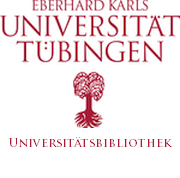›Schwarzer Feminismus‹ – zur Notwendigkeit und Herausforderung einer intersektionalen Perspektiverweiterung theologischer Anthropologien
DOI:
https://doi.org/10.18156/eug-1-2024-art-5Abstract
Sexism and racism are still a current problem in social and ecclesiastical-theological realities. Theological anthropology proves to be particularly susceptible to the adoption and consolidation of sexist and racist ideas, whether consciously or unconsciously. Despite growing efforts at deconstruction and an increased sensitivity to patriarchal and colonial structures in theological anthropology, it is often neglected that exclusionary tendencies do not occur in isolation, but can mutually reinforce, marginalize or even create new forms of discrimination. The initial thesis discussed here therefore emphasizes the need for an intersectional perspective in theological anthropologies in order to critically question and ultimately overcome the existing mechanisms of exclusion and discrimination. Otherwise, there is a risk that theologies that exclude diversity postulate and possibly construct a reality that is no longer shared by many.






